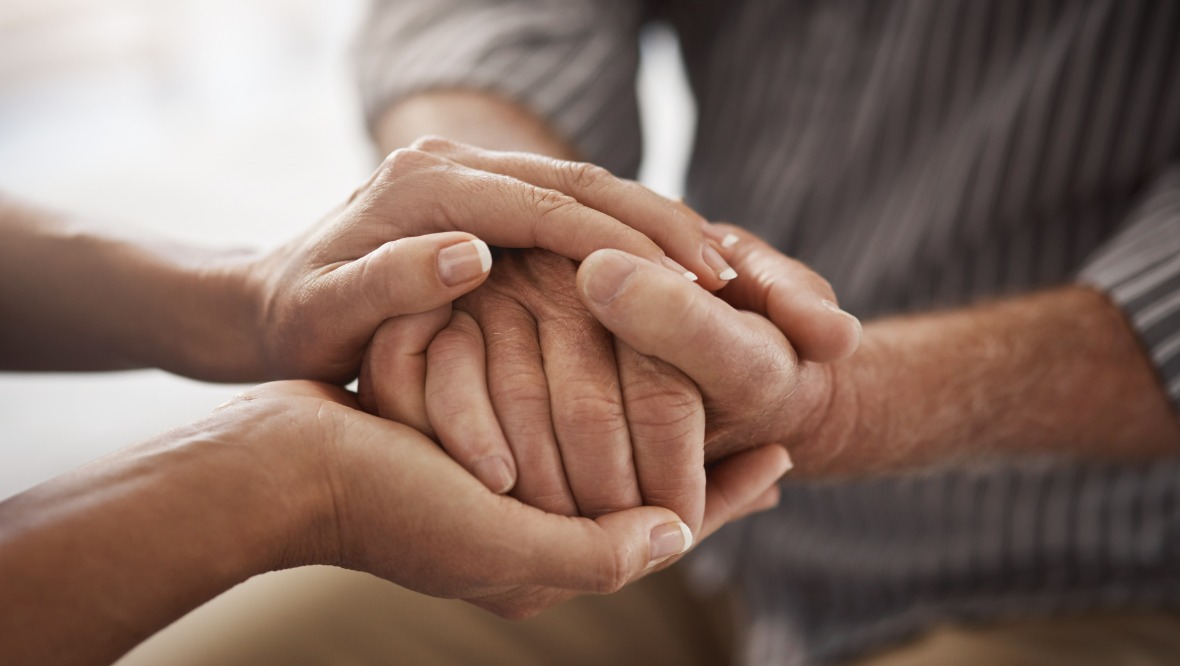Copyright stv

An Ayrshire man who was given weeks to live after developing aspiration pneumonia while in hospital made a remarkable recovery when he was given care at home. The story was revealed at a meeting of Ayrshire and Arran Health Board, highlighting both the positives and negatives in NHS Ayrshire & Arran’s approach to patient care. Derek, 58, who has Down’s Syndrome and learning difficulties, was admitted to University Hospital Ayr in May 2024 after developing aspiration pneumonia. His family were eager for him to return home to Prestwick, saying he was happiest in familiar surroundings. But sister Lesley described difficulties getting the right support while Derek was in hospital. “We stayed with Derek throughout his stay,” Lesley said in a video presented to the Board. “In May 2024 it was admitted to air hospital and had aspirational pneumonia after having trouble swallowing. “Though the GP suggested hospital at home she felt that the hospital would offer more treatment options and regretfully we agreed. “Unfortunately after six weeks in hospital we were told that he had days, maybe weeks to live, when all treatment would be stopped. “We’d stayed with Derek throughout his stay in hospital and we knew that if this was to be the end of his life, then he needed to be comfortable and cared for at home. “The hospital put every possible obstacle in our way to prevent us a taking Derek.” She said the family finally left the hospital with a Do Not Resuscitate order, an “unneeded action pack” and no formal care plan. Lesley continued: “After 12 days in hospital, he’d had only a saline drip and no food. He’d lost so much weight, and we were told if his NG (feeding) tube failed, it wouldn’t be replaced. “The thought of losing Derek was devastating, but watching him starve would have been worse.” Having returned home, things began to change for the better. A district nurse set up a care plan, coordinated community support and arranged daily visits to address bed sores. Support came from Hansel, the community learning disability team, hospice staff, and physiotherapists, who introduced breathing and muscle-strengthening exercises. Over the following weeks, Derek regained his strength. “He’d been unable even to sit up,” Lesley said. “We were shown how to move him every two hours and do arm and leg exercises four times a day. “Gradually, he got stronger. Eventually, he was able to sit up, then stand, and finally walk again.” Speech and language staff assessed his swallowing, allowing Derek to enjoy small meals once more. “By November, he was out and about again,” Lesley said. “He meets friends at the pub to play pool, goes to art and music groups, fishing, and even trips away. “He’s back to living the full life he always loved.” Despite ongoing medical needs, including a feeding tube, Derek and his family say they are now “enjoying life and having fun again.” Lesley credited the district nursing team for saving her brother’s life. “Although many different people were involved, the care was consistent and delivered with kindness and respect. “If he’d stayed in hospital, Derek wouldn’t be here today. Without Alison and the nurses, he wouldn’t have survived, and certainly not recovered the way he has.” Director of acute services Vicki Campbell had opened by apologising to the family for their experience in hospital, acknowledging the importance of patients receiving “the right care, in the right place, at the right time.” Medical director Crawford McGuffie said Derek’s case demonstrated both the shortcomings and strengths of the health system. “This is a powerful patient story. Derek experienced poor care in the hospital setting but excellent, person-centred care in the community,” he said. “As a system, we can’t be satisfied that half of our patients receive good care and the other half less than that. It shows the importance of getting patients to the right place first time. “It’s a real example of the power of home, and of family-enabled care.” While acknowledging to issues raised about Derek’s hospital care, the Board praised the South Ayrshire Community Nursing Team for their work under the ‘Getting It Right for Everyone (GIRFE)’ model, which focuses on individualised, coordinated care.



